January 6, 2016 •
CA Senate Bill Has Pay-to-Play Implications
On January 5, California legislators introduced a bill with pay-to-play implications. Sen. Jerry Hill introduced a bill forbidding members of the state Board of Equalization from acting on any tax matters involving donors who had given any amount of money […]
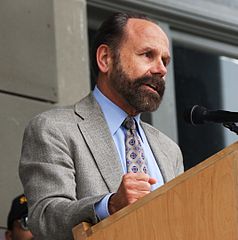 On January 5, California legislators introduced a bill with pay-to-play implications. Sen. Jerry Hill introduced a bill forbidding members of the state Board of Equalization from acting on any tax matters involving donors who had given any amount of money to their political campaigns in the previous 12 months.
On January 5, California legislators introduced a bill with pay-to-play implications. Sen. Jerry Hill introduced a bill forbidding members of the state Board of Equalization from acting on any tax matters involving donors who had given any amount of money to their political campaigns in the previous 12 months.
Hill and his fellow lawmakers are concerned about a loophole that currently exists allowing companies with an interest in board decisions to skirt the limit.
The bill is now being considered in committee.
Photo of Sen. Jerry Hill by Dave on Wikimedia Commons.
November 18, 2015 •
Public Comments Sought by New York’s Joint Commission on Public Ethics
The Joint Commission on Public Ethics is seeking public comment on a recent proposal aiming to prohibit pay-to-play contributions. The proposal comes in the form of an advisory opinion, and would prohibit statewide executive and legislative candidates from accepting campaign […]
 The Joint Commission on Public Ethics is seeking public comment on a recent proposal aiming to prohibit pay-to-play contributions. The proposal comes in the form of an advisory opinion, and would prohibit statewide executive and legislative candidates from accepting campaign contributions from persons or organizations subject to their enforcement powers.
The Joint Commission on Public Ethics is seeking public comment on a recent proposal aiming to prohibit pay-to-play contributions. The proposal comes in the form of an advisory opinion, and would prohibit statewide executive and legislative candidates from accepting campaign contributions from persons or organizations subject to their enforcement powers.
Currently, there is no prohibition on pay-to-play type contributions for legislative statewide elected candidates. The Joint Commission has not established a deadline for accepting public comments.
October 23, 2015 •
Chicago Labor Unions Representing City Employees Not Bound by City Pay-to-Play Restrictions
According to the Chicago Board of Ethics, unions representing city employees should not be bound by the city’s pay-to-play limits. Current campaign finance law bars vendors from contributing an aggregate amount exceeding $1,500 to any elected city official during a […]
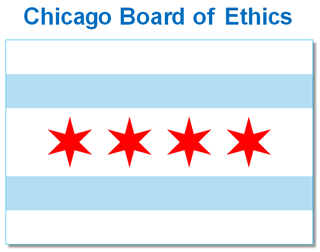 According to the Chicago Board of Ethics, unions representing city employees should not be bound by the city’s pay-to-play limits. Current campaign finance law bars vendors from contributing an aggregate amount exceeding $1,500 to any elected city official during a reporting year.
According to the Chicago Board of Ethics, unions representing city employees should not be bound by the city’s pay-to-play limits. Current campaign finance law bars vendors from contributing an aggregate amount exceeding $1,500 to any elected city official during a reporting year.
The Board ruled a collective bargaining agreement with the city is not the same as an agreement between the city and a private vendor providing goods or services because a labor union is not doing or seeking to do business with the city.
August 3, 2015 •
SEC Pay-To-Play Enforcement for Third Party Solicitations Delayed
On July 31, the Securities and Exchange Commission (SEC) was to begin enforcing pay-to-play rules under 17 C.F.R. §275.206(4)-5 for third party solicitations. However, on June 25, the SEC stated until there is an effective date of a Financial Industry […]
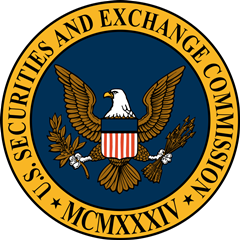 On July 31, the Securities and Exchange Commission (SEC) was to begin enforcing pay-to-play rules under 17 C.F.R. §275.206(4)-5 for third party solicitations. However, on June 25, the SEC stated until there is an effective date of a Financial Industry Regulatory Authority (FINRA) pay-to-play rule or an effective date of a Municipal Securities Rulemaking Board (MSRB) pay-to-play rule, whichever is later, the Division of Investment Management would not recommend enforcement action to the SEC against an investment adviser or its covered associates under rule 206(4)-5(a)(2)(i) for the payment to any person to solicit a government entity for investment advisory services. Neither FINRA nor the MSRB have yet adopted pay-to-play rules.
On July 31, the Securities and Exchange Commission (SEC) was to begin enforcing pay-to-play rules under 17 C.F.R. §275.206(4)-5 for third party solicitations. However, on June 25, the SEC stated until there is an effective date of a Financial Industry Regulatory Authority (FINRA) pay-to-play rule or an effective date of a Municipal Securities Rulemaking Board (MSRB) pay-to-play rule, whichever is later, the Division of Investment Management would not recommend enforcement action to the SEC against an investment adviser or its covered associates under rule 206(4)-5(a)(2)(i) for the payment to any person to solicit a government entity for investment advisory services. Neither FINRA nor the MSRB have yet adopted pay-to-play rules.
Pay-to-play rules imposed by 17 C.F.R. §275.206(4)-5 apply to investment advisers and their covered associates who make contributions to officials of state and local government entities.
July 16, 2015 •
Seattle Ballot Initiative Proposes Pay-to-Play Restrictions, Reduction to Contribution Limits
Initiative 122, a ballot measure proposing to raise property taxes in Seattle to create a publicly financed elections program, will appear on the general election ballot in Seattle. If passed, the “Honest Elections Seattle” measure would impose a $30 million […]
 Initiative 122, a ballot measure proposing to raise property taxes in Seattle to create a publicly financed elections program, will appear on the general election ballot in Seattle. If passed, the “Honest Elections Seattle” measure would impose a $30 million tax levy over a 10 year period, granting citizens four $25 “democracy vouchers” to use towards the campaigns of city candidates.
Initiative 122, a ballot measure proposing to raise property taxes in Seattle to create a publicly financed elections program, will appear on the general election ballot in Seattle. If passed, the “Honest Elections Seattle” measure would impose a $30 million tax levy over a 10 year period, granting citizens four $25 “democracy vouchers” to use towards the campaigns of city candidates.
Initiative 122 would also ban contributions from corporations with medium-sized and large city contracts as well as corporations who lobby city officials. Contribution limits would also be lowered under the measure, from $700 per election cycle to $500.
Voters in Seattle will have an opportunity to approve or deny Initiative 122 on November 3, 2015, at the regularly scheduled general election.
On Monday, New Jersey Gov. Chris Christie conditionally vetoed bipartisan legislation designed to expand the state’s pay-to-play rules by requiring the state to disclose fees paid to outside investment managers. The decision was made while Christie’s administration faces a new […]
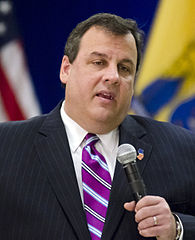 On Monday, New Jersey Gov. Chris Christie conditionally vetoed bipartisan legislation designed to expand the state’s pay-to-play rules by requiring the state to disclose fees paid to outside investment managers. The decision was made while Christie’s administration faces a new investigation into New Jersey pension fees paid to financial firms contributing to Republican groups.
On Monday, New Jersey Gov. Chris Christie conditionally vetoed bipartisan legislation designed to expand the state’s pay-to-play rules by requiring the state to disclose fees paid to outside investment managers. The decision was made while Christie’s administration faces a new investigation into New Jersey pension fees paid to financial firms contributing to Republican groups.
Christie argues the bill’s disclosure requirements would have had a chilling effect on the state’s ability to attract investment managers. Others criticize the governor’s decision and maintain he vetoed the bill because it would have complicated his ability to raise presidential campaign money from firms currently managing billions of dollars in the state’s public pension system.
Christie “removed the provisions that would prevent pay-to-play between state investors and national political organizations connected to state political figures, including the governor himself, and the changes he made to the disclosure requirements are far too weak” said state Sen. Sheila Turner, the Democrat who sponsored the bill.
Photo of Governor Christie by Bob Jagendorf on Wikimedia Commons.
February 4, 2015 •
Senate Bill 2505 Takes Aim at New York Lobbying, Pay-to-Play
A bill introduced in the New York Senate would impose new reporting requirements on lobbyists and lobbyist employers, as well as limit political contributions from lobbyists and certain other persons. The bill also contains pay-to-play restrictions. Senate Bill 02505 requires […]
 A bill introduced in the New York Senate would impose new reporting requirements on lobbyists and lobbyist employers, as well as limit political contributions from lobbyists and certain other persons. The bill also contains pay-to-play restrictions.
A bill introduced in the New York Senate would impose new reporting requirements on lobbyists and lobbyist employers, as well as limit political contributions from lobbyists and certain other persons. The bill also contains pay-to-play restrictions.
Senate Bill 02505 requires lobbyists, certain business entities, persons with ownership interests or senior level management within such entities, and family members of any of the foregoing to file campaign finance reports when making contributions to the governor, lieutenant governor, attorney general, comptroller, and state legislators.
The bill further limits the amount of any contribution made to any of those offices or associated political committees. The bill requires lobbyists and lobbyist employers to disclose contributions to the governor, lieutenant governor, attorney general, comptroller, and state legislators on their periodic reports.
Senate Bill 02505 requires state contractors with contracts totaling more than $50,000 and persons who own more than 10 percent of any business entity having such a contract, senior management personnel in such a business entity, and family members of the foregoing persons to file campaign finance reports. The bill also limits contributions from such persons to the governor, lieutenant governor, attorney general, comptroller, and state legislators and affiliated political committees for the duration of the qualifying contract.
Senate Bill 02505 was referred to the Senate Committee on Finance on January 28, 2015.
November 17, 2014 •
FINRA Proposed Pay-to-Play Rules
The Financial Industry Regulatory Authority (FINRA), a private, self-regulatory organization for U.S. securities firms, is proposing pay-to-play rules. According to FINRA Regulatory Notice 14-50, posted on November 14, it is requesting comment on the proposed rules, which would regulate the […]
 The Financial Industry Regulatory Authority (FINRA), a private, self-regulatory organization for U.S. securities firms, is proposing pay-to-play rules.
The Financial Industry Regulatory Authority (FINRA), a private, self-regulatory organization for U.S. securities firms, is proposing pay-to-play rules.
According to FINRA Regulatory Notice 14-50, posted on November 14, it is requesting comment on the proposed rules, which would regulate the activities of member firms engaging “in distribution or solicitation activities for compensation with government entities on behalf of investment advisers that provide or are seeking to provide investment advisory services to such government entities within two years after a contribution to an official of the government entity is made by the member firm or a covered associate.” The three specific rules for which FINRA is seeking comment are Rule 2271, Rule 2390, and Rule 4580.
October 24, 2014 •
Pennsylvania Pay-to-Play Law Signed by Governor
Gov. Tom Corbett has signed a bill to curtail pay-to-play politics in state procurement contracts. House Bill 201 prohibits individuals who were employed by an offeror within the previous two years from participating in the evaluation of proposals. The new […]
 Gov. Tom Corbett has signed a bill to curtail pay-to-play politics in state procurement contracts. House Bill 201 prohibits individuals who were employed by an offeror within the previous two years from participating in the evaluation of proposals.
Gov. Tom Corbett has signed a bill to curtail pay-to-play politics in state procurement contracts. House Bill 201 prohibits individuals who were employed by an offeror within the previous two years from participating in the evaluation of proposals.
The new law will prevent recently hired government workers from rewarding their former employers with large state contracts.
This provision will go into effect on December 20.
October 15, 2014 •
ELEC Director Urges New Jersey Legislature to Overhaul Pay-to-Play
Executive Director Jeff Brindle of the New Jersey Election Law Enforcement Commission issued a statement urging the state Legislature to amend existing pay-to-play law. He claims constitutional challenges to federal laws may have ramifications on New Jersey’s law, and a […]
 Executive Director Jeff Brindle of the New Jersey Election Law Enforcement Commission issued a statement urging the state Legislature to amend existing pay-to-play law. He claims constitutional challenges to federal laws may have ramifications on New Jersey’s law, and a complete overhaul is necessary.
Executive Director Jeff Brindle of the New Jersey Election Law Enforcement Commission issued a statement urging the state Legislature to amend existing pay-to-play law. He claims constitutional challenges to federal laws may have ramifications on New Jersey’s law, and a complete overhaul is necessary.
Brindle argues state pay-to-play law is too complex and has unintended consequences. Contractors either stop making contributions altogether, seek ways to legally circumvent the law, or simply break the law. Moreover, donations to transparent entities such as candidates and parties have declined while the activity of PACs and anonymous independent groups has increased significantly.
Because pay-to-play law is worthwhile, Brindle suggests establishing one state law, ending the fair and open loophole, enhancing disclosure, raising the contribution limit, exempting political parties, and including restrictions on contractor contributions to PACs.
The statement represented the personal opinions of Jeff Brindle and not necessarily those of the Commission.
October 1, 2014 •
Court Challenge to SEC Pay-to-Play Rules Dismissed by Court
A suit filed by the Republican parties of New York and Tennessee challenging the Securities and Exchange Commission’s (SEC) Pay-to-Play rule has been dismissed by the U.S. District Court for the District of Columbia. The court held it did not […]
 A suit filed by the Republican parties of New York and Tennessee challenging the Securities and Exchange Commission’s (SEC) Pay-to-Play rule has been dismissed by the U.S. District Court for the District of Columbia. The court held it did not have jurisdiction and the proper court to hear the case is the D.C. Circuit Court of Appeals.
A suit filed by the Republican parties of New York and Tennessee challenging the Securities and Exchange Commission’s (SEC) Pay-to-Play rule has been dismissed by the U.S. District Court for the District of Columbia. The court held it did not have jurisdiction and the proper court to hear the case is the D.C. Circuit Court of Appeals.
The plaintiffs alleged SEC Rule 206(4)-5, which imposes restrictions upon investment advisors and their covered associates making contributions to officials of state and local government entities, violates the freedom of speech protections of the First Amendment. The suit also took the position the SEC does not have the authority to regulate campaign contributions.
August 21, 2014 •
California Passes Pay-to-Play Bill to Include Water Boards
Legislators have approved an expansion of pay-to-play rules in response to a controversy involving suspended Sen. Ronald S. Calderon and his brother, former Assemblyman Tom Calderon. The two Democrats from Montebello made large campaign donations to most members of the […]
 Legislators have approved an expansion of pay-to-play rules in response to a controversy involving suspended Sen. Ronald S. Calderon and his brother, former Assemblyman Tom Calderon. The two Democrats from Montebello made large campaign donations to most members of the Central Basin Municipal Water District Board before it approved a consulting contract for Tom Calderon.
Legislators have approved an expansion of pay-to-play rules in response to a controversy involving suspended Sen. Ronald S. Calderon and his brother, former Assemblyman Tom Calderon. The two Democrats from Montebello made large campaign donations to most members of the Central Basin Municipal Water District Board before it approved a consulting contract for Tom Calderon.
Assembly Bill 1728 will add elected water board members throughout California to the list of officers who may not accept campaign contributions of more than $250 from donors with business pending before their boards. Officers must abstain from voting on pending business matters if such a donation has been received during the previous year.
The legislation now goes to Gov. Jerry Brown.
August 20, 2014 •
Director of New Jersey ELEC Calls for Pay-to-Play Reform
Executive Director Jeff Brindle of the Election Law Enforcement Commission is calling for comprehensive pay-to-play reform after critics revealed a loophole in Trenton’s laws. The loophole became apparent after a South Jersey law firm was awarded a contract with the […]
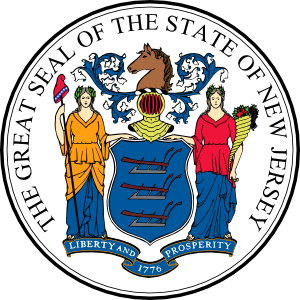 Executive Director Jeff Brindle of the Election Law Enforcement Commission is calling for comprehensive pay-to-play reform after critics revealed a loophole in Trenton’s laws. The loophole became apparent after a South Jersey law firm was awarded a contract with the city worth up to $20,000.
Executive Director Jeff Brindle of the Election Law Enforcement Commission is calling for comprehensive pay-to-play reform after critics revealed a loophole in Trenton’s laws. The loophole became apparent after a South Jersey law firm was awarded a contract with the city worth up to $20,000.
One of the firm’s founding partners was serving as the treasurer of a PAC when the PAC donated $8,200 to the election campaign of Trenton Mayor Eric Jackson. Because neither the law firm nor any of its partners made a donation to the PAC, the contract award was not deemed a violation of the city’s pay-to-play law.
Critics, however, want the law revised to include such contract awards. Part of Brindle’s recommendations for reform include simplifying complex laws, creating a single pay-to-play law to apply to all governments at the state, county, and local levels, and prohibiting the pay-to-play loophole for publicly bid contracts.
June 25, 2014 •
SEC Charges Firm with Pay-to-Play Violation
For the first time, the U.S. Securities and Exchange Commission (SEC) has charged a firm with violations of its pay-to-play rules. On June 20, the SEC charged TL Ventures Inc., a private equity firm, with receiving advisory fees from the […]
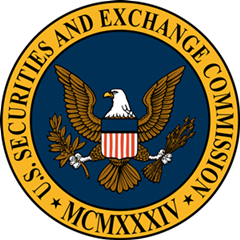 For the first time, the U.S. Securities and Exchange Commission (SEC) has charged a firm with violations of its pay-to-play rules. On June 20, the SEC charged TL Ventures Inc., a private equity firm, with receiving advisory fees from the pension funds of both Philadelphia and Pennsylvania after an associate of the firm had made campaign contributions in 2011 to the governor and a candidate for mayor.
For the first time, the U.S. Securities and Exchange Commission (SEC) has charged a firm with violations of its pay-to-play rules. On June 20, the SEC charged TL Ventures Inc., a private equity firm, with receiving advisory fees from the pension funds of both Philadelphia and Pennsylvania after an associate of the firm had made campaign contributions in 2011 to the governor and a candidate for mayor.
Federal regulations prohibit investment advisers and their covered associates who make contributions to officials of state and local government entities from providing compensatory advisory services for two years following a campaign contribution. TL Ventures Inc. has agreed to settle the charges by paying nearly $300,000.
State and Federal Communications, Inc. provides research and consulting services for government relations professionals on lobbying laws, procurement lobbying laws, political contribution laws in the United States and Canada. Learn more by visiting stateandfed.com.

